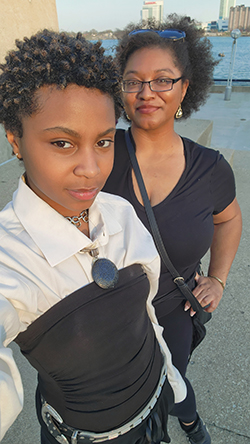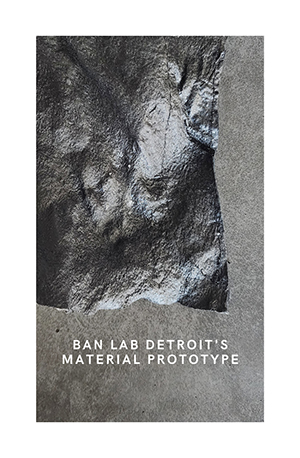Startup Sustainability Pitch Competition winners plan to make plastic alternatives fashionable
Every minute, enough plastic to fill a garbage truck is dumped into Earth's oceans. This statistic is one of many from a recent U.N. report that showcases the perils of plastic pollution.
This year's Startup Sustainability Pitch Competition, hosted and supported by the Fred A. and Barbara M. Erb Family Foundation and Wayne State University, featured students who were inspired to develop creative solutions to the world's plastic problem.

Students from across the university were encouraged to apply for this year's competition. Applicants from a range of academic programs were matched together into six teams and tasked with developing viable alternatives to plastic.
Teams gathered every week for three months, refining their ideas in an accelerator clinic where Detroit-based business and sustainability professionals advised them on their prototypes and plans. The program culminated with teams pitching their ideas before a Shark Tank-style panel that decided which proposals received funding.
The first-place team, BAN Lab Detroit, received a $25,000 award while the runner-up, TerraToGo, received $10,000.
In the bag
Najah Thomas-Young, an undergraduate student in fine arts and fashion design, was lamenting that less than 20% of the world's textiles are recycled. Brittanie Dabney, a doctoral student in biological sciences and urban sustainability, was writing her dissertation on the effects of microplastic pollution on aquatic life. They had never met before the competition but started conceptualizing BAN Lab Detroit as soon as they were paired together.
They decided to work toward opening a coworking lab space where designers and researchers interested in the biomaterials industry could create bio-based products. There, they would produce a line of sustainable handbags using materials including seaweed and industrial waste.
"My favorite parts of the competition were watching how our idea really morphed into something to be proud of and how we were able to talk about it clearly and feel competent," Thomas-Young said.
The team hopes the award funds will help them procure a location for BAN Lab Detroit to call home and start serving the community.

"The $25,000 will help with physical space and equipment and with starting the process so that we can get something off the ground and start generating revenue," Thomas-Young said. "As we've made partnerships throughout Detroit, it's given us confidence that we have a great idea to move forward with and that we're filling in an actual gap by intercepting waste streams in the city."
"We found just from talking with people around Detroit that this is something that people actually want," Dabney added. "The competition gave us really good experience on how to communicate with people who don't have the same background."
This, Dabney said, applied even within their own team.
"We're meshing both our interests and our expertise. But we're still able to maintain our uniqueness," Dabney said. "The fact that Najah has experience making these materials, but then I'm coming from a different perspective where I'm kind of looking at the data, we can bring in different communities into our space to work on this really complex yet important thing that we need to start solving, which is the plastic issue."